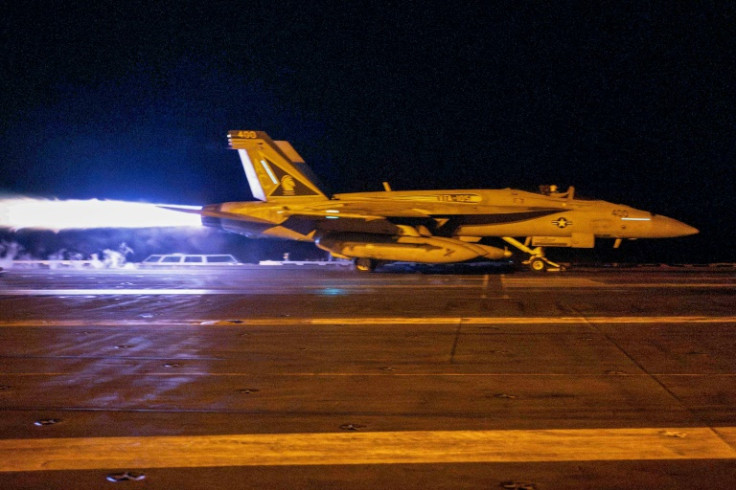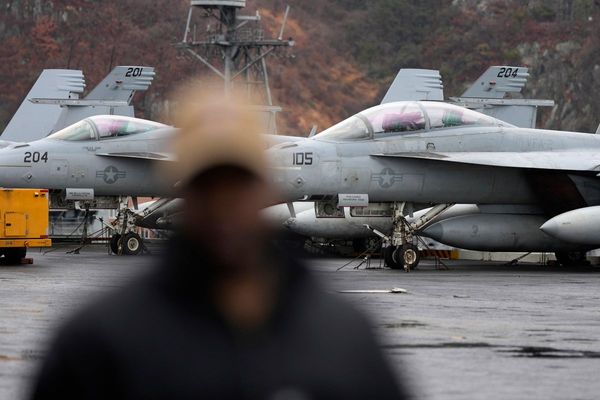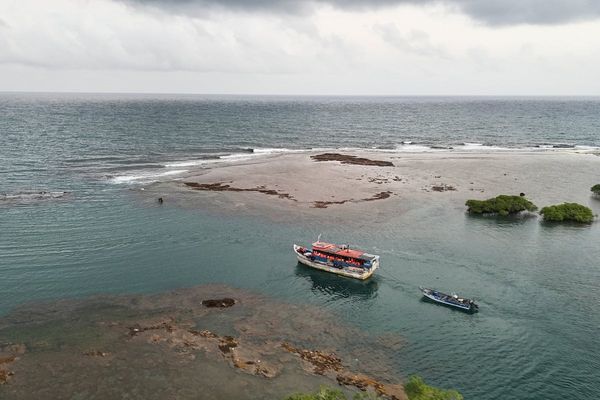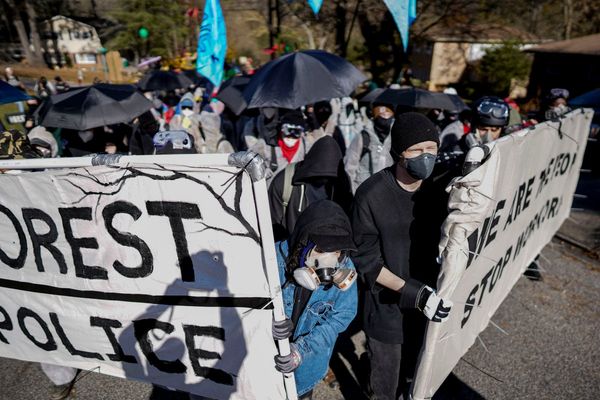
Gunfire and air strikes on Friday shook Gaza's city of Khan Yunis, witnesses said, where Israel is pressing its southward push against Hamas militants.
The Palestinian Red Crescent reported intense artillery fire near the city's Al-Amal hospital, while the health ministry in Hamas-run Gaza said 77 people were killed and dozens wounded overnight.
At the city's Al-Nasser hospital, a child with a bloodied face cried on a gurney. Ambulances arrived with the injured and the dead while in the darkened city beyond, automatic weapons fire sounded. An orange fireball flashed above rooftops.
Israel says it still expects the war to continue for months but a US-Israeli divide over Gaza's post-war future has come into sharp focus after Washington again stressed creation of a Palestinian state as the only way to guarantee Israel's long-term security.
The United Nations says the war, which began with unprecedented Hamas attacks against Israel on October 7, has displaced roughly 85 percent of Gaza's people.
Many are crowded into shelters where they struggle to get food, water, fuel and medical care. UN agencies say improved aid access is needed urgently as famine and disease loom.
The October 7 attacks resulted in the deaths of about 1,140 people in Israel, most of them civilians, according to an AFP tally based on official figures.
Militants also seized about 250 hostages, around 132 of whom Israel says remain in Gaza. At least 27 hostages are believed to have been killed, according to an AFP tally based on Israeli figures.
Israel has vowed to destroy Hamas in response. Its relentless air and ground offensive has killed at least 24,620 Palestinians, mostly women and children, according to Gaza's health ministry.
With Israel's military offensive moving farther south in the territory, which is about 40 kilometres (25 miles) long, some residents in northern Gaza have begun returning home to what remains of their neighbourhoods.
In Gaza City's Rimal district, rubble has been ploughed to the sides of some dirt roads but others are still clogged with pieces of collapsed buildings.
One modern mid-rise building was still standing, its windows shattered. Another tower was a burned-out shell.
"Look at all this destruction. There is not a house, shop or car. Everything is destroyed and the people are dying of hunger," said Ibrahim Saada, a bandage on his left thumb. He said he lost his whole family.
Several kilometres south, Nuseirat showed similar destruction but also signs of life. Vendors set up streetside stalls selling vegetables that entered through the Rafah crossing with Egypt.
"Thank God there's a reverse displacement. Residents are returning to their homes," said Raid al-Tawil.
But they are coming back to a struggle for survival.
The World Health Organization warned of the spread of Hepatitis A, linked to contaminated food and water.
"The inhumane living conditions -- almost no drinking water, clean toilets or ability to keep the surroundings clean -- will allow hepatitis A to spread further," WHO Director-General Tedros Adhanom Ghebreyesus said Friday on X.
Israel's army in early January said the Hamas command structure in northern Gaza had been dismantled, but groups of isolated fighters still confront troops there.
On Friday the military said ground troops backed by air support had killed several armed militants in the north. A Hamas statement reported combat in the north's Jabalia refugee camp and nearby Gaza City area.
Washington provides Israel with billions of dollars in military aid but the two allies disagree over Gaza's post-war future.
US Secretary of State Antony Blinken this week used the World Economic Forum in Davos, Switzerland, to renew his call for a "pathway to a Palestinian state".
In a trip to the Middle East this month, he emphasised Arab countries were committed to helping reconstruct Gaza and aiding with future Palestinian governance, but only if Israel clears the path for Palestinian statehood.
Israeli Prime Minister Benjamin Netanyahu's hard-right government has opposed this.
"Israel must have security control over the entire territory west of the Jordan River," Netanyahu said on Thursday. "This is a necessary condition, which contradicts the idea of (Palestinian) sovereignty."
Netanyahu is under domestic pressure to account for political and security failings surrounding the October 7 attacks and to bring the hostages home. Opinion polls suggest his support has fallen since the war.
On Thursday night hundreds of Israelis marched in Tel Aviv for peace, for both Jews and Palestinians.
"The atrocity of seventh October cannot really justify continued killing of civilians in Gaza," said Thabet Abu Rass, who joined the protest.
While Israel bombards Gaza targets, the United Nations humanitarian agency, OCHA, reported Thursday that "the indiscriminate firing of rockets by Palestinian armed groups from Gaza continued" as well.
The UN special rapporteur on the Palestinian territories, Francesca Albanese, said Israel's bombardment has broken international law.
"People are dying now not only because of the bombs but because there is not sufficient health infrastructure to cure them of wounds," she said. "It is a monstrosity."
The Gaza war has already spilled into the surrounding region, with Iran-aligned groups in Yemen, Lebanon, Iraq and Syria carrying out attacks.
A wider conflagration has so far been averted but such fears have been accentuated by Yemeni rebels' missile and drone fire against shipping in the Red Sea area, prompting retaliatory strikes by US forces.
Yemen's Huthi movement is targeting what it deems Israeli-linked vessels in support of Palestinians in Gaza.
But the US military said two Huthi-launched missiles fell short of the Chem Ranger, a US-owned and Greek-operated tanker.
On Thursday the US military announced a fifth round of strikes against Huthi military targets. President Joe Biden admitted the strikes, which Britain earlier took part in, had not yet succeeded in preventing Huthi attacks against global shipping.







